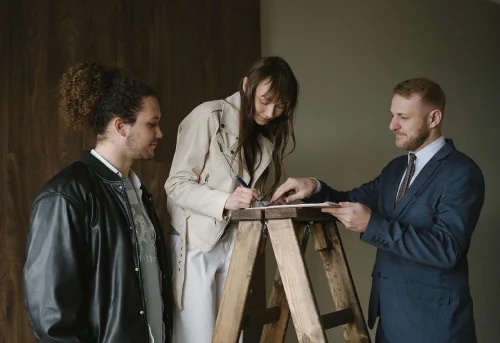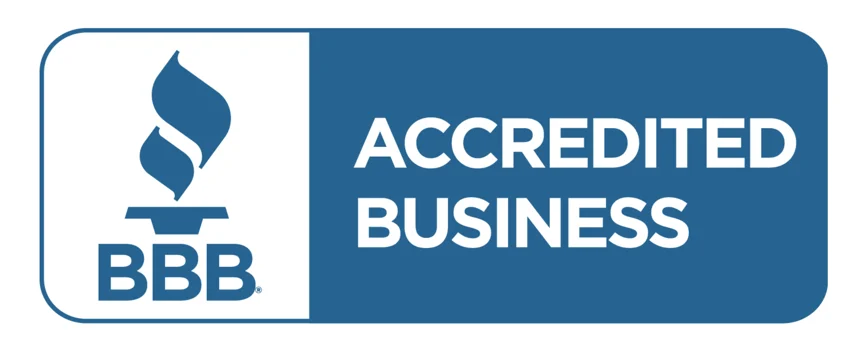How to Sell Inherited Property in Michigan (Without the Overwhelm)
May 09, 2025 | Hanna Cena
Inheriting a house can feel like a blessing—and a burden. Whether it’s your childhood home or a property you’ve never seen, figuring out how to sell inherited property can be emotionally draining and legally confusing.
But don’t worry. You’re not alone, and the process doesn’t have to be overwhelming. Let’s walk through the steps in plain English—plus give you local insights if you’re selling in West Michigan.
Step 1: Understand the Legal Process (Probate or Nonprobate?)
Before you can sell an inherited house, you need to know if it must go through probate. Probate is the legal process of transferring ownership of a deceased person’s assets. If you’re unfamiliar with how probate works in Michigan, the Michigan Courts’ guide to probate offers a helpful overview.
There are two main scenarios:
- If the property was in a trust or had a joint owner: You may be able to skip probate and transfer ownership more quickly.
- If the property was solely in the deceased person’s name: Probate will likely be required before the home can be sold.
🔍 Tip: In Michigan, simplified probate may apply if the estate is small. A probate attorney or your local court can help determine what’s required.
Step 2: Transfer Ownership Into Your Name
Before you list or sell the house, ownership must be legally transferred to you or the rightful heirs.
This means:
- Filing the will with probate court (if required)
- Getting legal documentation that proves you have the authority to sell
- Updating the deed with your name or your name as executor
Until that paperwork is done, no one can legally sell the property—even if the keys are in your hand.
Step 3: Decide What to Do With the Property
Once you legally own the house, you have options:
✅ Keep It
You can move in, rent it out, or fix it up later.
✅ Sell It As-Is
No need to make repairs. Selling the property as-is can save time and stress—especially if you’re juggling grief, legal steps, or long-distance logistics.
✅ Fix It Up and List It
Some heirs choose to repair and stage the home for the traditional market. This can lead to a higher sale price, but also costs time, energy, and money.
If the home is in Grand Rapids, Kentwood, or Holland, and in decent condition, fixing it might bring you a better offer—but it’s not always necessary.

Step 4: Understand the Tax Implications
Good news: In most cases, you won’t owe taxes on the full value of the home.
When you inherit property, the IRS gives it a stepped-up basis, which means the value of the home is adjusted to its fair market value at the time of the original owner’s death.
So, if you sell the home shortly after inheriting it, you likely won’t owe much in capital gains tax.
✅ Still, it’s smart to talk to a local tax advisor to be sure—especially if the home is sold months or years later.
Step 5: Prepare the Property for Sale (Without Overdoing It)
If you’re selling inherited property as-is, here’s how to make it marketable without stress:
- Remove personal belongings or valuables
- Clean up any trash or clutter
- Fix anything that poses safety risks (optional)
- Take photos or ask for a walkthrough if you’re not local
💡 If you’re overwhelmed, working with a local cash buyer like Hometown Development means you can skip this step altogether—we handle cleanouts, repairs, and paperwork.
Step 6: Choose How You Want to Sell
Traditional Listing
This route takes longer but may bring in top dollar. Be ready for showings, inspections, and buyer negotiations.
Cash Buyer or Real Estate Investor
Want to sell fast and skip repairs, fees, and commissions? A cash buyer will make you a fair offer and close on your timeline.
Step 7: Communicate with Co-Heirs (If Applicable)
If you inherited the property with siblings or other family members, open and honest communication is key.
Discuss these questions early:
- Will everyone agree to sell?
- How will the profits be divided?
- Who will handle the paperwork or contact buyers?
Disagreements can delay the sale or create tension. If things get complicated, you may want to bring in a probate attorney or mediator to help reach a fair resolution.
Selling to a local, professional buyer can also simplify things—especially when multiple heirs are involved.
Step 8: Avoid Common Mistakes That Cost Time and Money
Inherited property sales come with emotional and legal pressure. To avoid unnecessary stress, try not to:
- Delay paperwork or probate steps
- Overspend on repairs that won’t increase the sale price
- Wait too long to act (vacant homes can create insurance or code issues)
Instead, focus on clarity and momentum. The sooner you understand your options and make a plan, the sooner you can move forward.
If you’re unsure what to fix—or whether to fix anything at all—Hometown Development can evaluate the home and make a no-obligation offer, helping you skip the guesswork entirely.
Also visit our blog Top Things You Should not Fix Before Selling Your House
Local Insight: Inherited Homes in West Michigan
If you’ve inherited a home in West Michigan, you’re not alone. Many properties passed down in this region were built decades ago—often by parents or grandparents who lived in the same home for generations.
While these homes hold sentimental value, they also come with challenges, especially when it comes to maintenance and market readiness.
In cities like Grand Rapids, Wyoming, Kentwood, and Holland, older homes are commonly inherited and often need repairs, updates, or full cleanouts.
Some still have the original furnace or outdated electrical systems. Others may be sitting vacant, which can raise concerns about insurance, security, or property taxes.
But here’s the good news—these homes are still valuable. West Michigan’s real estate market has remained strong, with steady demand and rising home values.
Even if a property is outdated or hasn’t been touched in years, there’s a growing number of buyers (especially investors and first-time homeowners) looking for affordable options with character and potential.
If the thought of managing repairs, inspections, or agent commissions feels overwhelming, you can skip all of that by selling the property as-is. Companies like Hometown Development specialize in buying inherited homes quickly and respectfully—no updates or showings required.
Whether the home is in Comstock Park, Zeeland, Lowell, or a rural area of Ionia County, you still have options to sell fast and move forward with peace of mind.
Final Thoughts: Selling an Inherited Property Doesn’t Have to Be Complicated
Grieving a loved one and dealing with legal steps is hard enough. Selling the property shouldn’t add more stress to your life.
Whether you want to sell fast, sell as-is, or just need guidance on your options, Hometown Development is here to help. We’ll walk you through every step with compassion and clarity—no pressure, no commissions, no surprises.
Ready to Sell an Inherited Property in Michigan?
Let’s make it simple. Contact Hometown Development for a fair, fast offer—backed by local experts who care.







